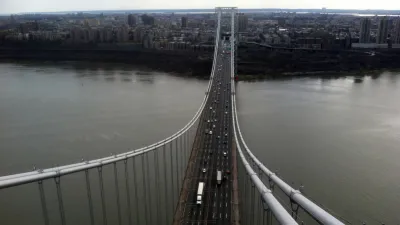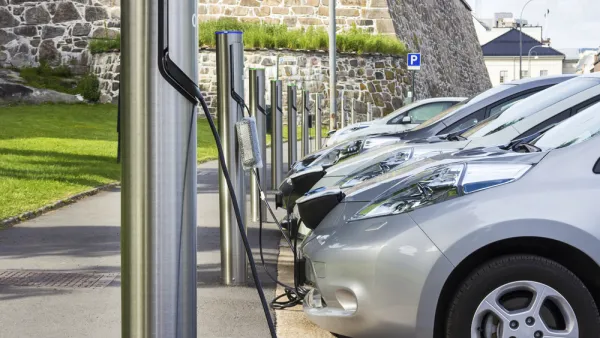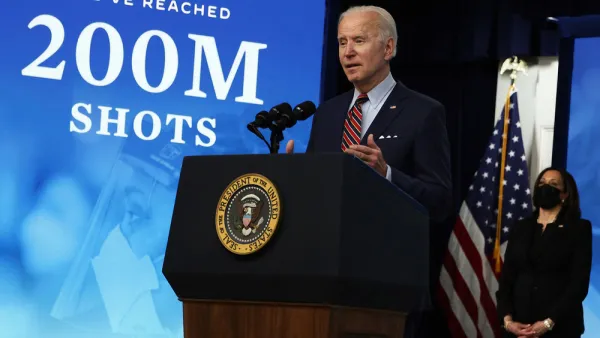To some, the agreement promises too much funding for traditional infrastructure programs rather than 'adaptations and innovations.'

[Updated July 20, 2021.]
Strong Towns' Charles Marohn argues that the proposals of the Bipartisan Infrastructure Framework will "make our infrastructure crisis worse." According to Marohn, "[s]hoveling unprecedented levels of funding into current programs prior to any serious work on reform is a terrible idea, regardless of who proposes it."
Assessing the funding outlined in the bipartisan compromise, Marohn writes:
While $5 million for active transportation sounds nice, you’ll find $4.2 billion for trunk highways in the bill. If the $5 million for Safe Routes for School gets you excited, perhaps you won’t mind the $1.7 billion for county state aid highways. That $57.5 million in bus rapid transit seems really progressive until it is compared to the $430 million being spent on municipal state aid routes (a program to essentially turn local streets into highways). Nearly half a billion dollars is going to the Department of Public Safety, with $226 million of that just for patrolling highways. We’re going to spend more in two weeks on highway patrols than we will spend in two years in the active transportation account.
Marohn proposes that "[o]ur top-down infrastructure programs need to shift to support maintenance, not expansion, and make room for the bottom-up adaptations and innovations needed to drive gains in productivity." Moreover: "[w]e should not be cheering on a bi-partisan consensus based on some simulacrum of reform while an overwhelming amount of spending is going to programs that are making us weaker as a country, as cities, and as neighborhoods."
FULL STORY: A Preview of Bi-Partisan Compromise on Infrastructure (Sorry, It's Not Good)

Analysis: Cybertruck Fatality Rate Far Exceeds That of Ford Pinto
The Tesla Cybertruck was recalled seven times last year.

National Parks Layoffs Will Cause Communities to Lose Billions
Thousands of essential park workers were laid off this week, just before the busy spring break season.

Retro-silient?: America’s First “Eco-burb,” The Woodlands Turns 50
A master-planned community north of Houston offers lessons on green infrastructure and resilient design, but falls short of its founder’s lofty affordability and walkability goals.

Test News Post 1
This is a summary

Analysis: Cybertruck Fatality Rate Far Exceeds That of Ford Pinto
The Tesla Cybertruck was recalled seven times last year.

Test News Headline 46
Test for the image on the front page.
Urban Design for Planners 1: Software Tools
This six-course series explores essential urban design concepts using open source software and equips planners with the tools they need to participate fully in the urban design process.
Planning for Universal Design
Learn the tools for implementing Universal Design in planning regulations.
EMC Planning Group, Inc.
Planetizen
Planetizen
Mpact (formerly Rail~Volution)
Great Falls Development Authority, Inc.
HUDs Office of Policy Development and Research
NYU Wagner Graduate School of Public Service




























